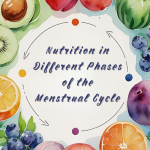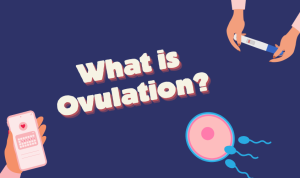
Ovulation is: what you need to know
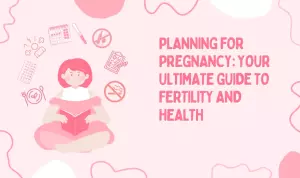
Planning for Pregnancy: Your Ultimate Guide to Fertility and Health

Preparing Mentally and Emotionally for Pregnancy
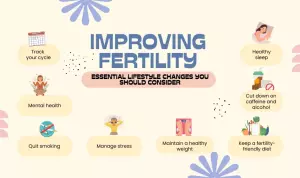
Improving Fertility: Essential Lifestyle Changes You Should Consider

How to Talk to Your Partner About Pregnancy Plans
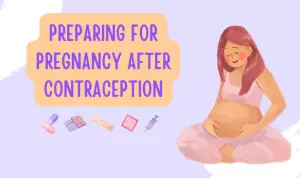
Preparing for Pregnancy After Contraception

The Best Foods for Fertility
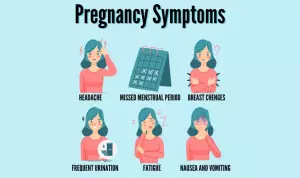
Understanding Pregnancy Symptoms: Early Signs and Changes to Expect

Can Pregnancy and Alcohol Mix?
Planning for Pregnancy
Planning for pregnancy is a personal and exciting journey. It involves understanding your body and fertility cycles. You also need to make lifestyle adjustments to support healthy conception. Whether you are ready to start a family soon or want to optimize your chances, preparing for pregnancy is key. This section offers valuable insights on how to prepare, from tracking ovulation to improving fertility health. You’ll learn how to track your cycle, boost fertility, and when to seek professional help.
Although planning for pregnancy can feel overwhelming, the right information and support can make it empowering. Understanding your menstrual cycle and ovulation helps you take control of your fertility. You can make informed decisions, ensuring the best chance for conception. This section covers the topics necessary for preparing for a healthy pregnancy. It helps you make the best choices for your health and future family.
How to Prepare Your Body for Pregnancy
Preparing your body for pregnancy is one of the most important steps. Your health affects both your chances of conception and your baby’s health. Start by focusing on physical and mental wellness. Maintaining a healthy weight, eating a balanced diet, and adopting an exercise routine are key. Regular visits to your healthcare provider for checkups ensure you’re in optimal health before trying to conceive.
Prioritize prenatal vitamins, particularly folic acid, to help prevent birth defects. Also, avoid smoking and excessive drinking, which can affect fertility. Taking care of your overall health will improve your chances of conceiving. A preconception checkup is essential to ensure you’re ready for pregnancy.
Understanding Ovulation and Your Fertile Window
Understanding ovulation is a critical part of planning for pregnancy. Ovulation occurs when your ovaries release an egg. This happens midway through your menstrual cycle. When this egg is released, it’s ready for fertilization. Knowing when ovulation occurs can greatly increase your chances of pregnancy. It’s essential to track your ovulation and fertile window.
By tracking ovulation, you can determine the best time to conceive. There are several methods to track ovulation, such as monitoring cervical mucus, using ovulation predictor kits (OPKs), and tracking basal body temperature (BBT). With these methods, you can pinpoint the best time for conception.
Lifestyle Changes to Boost Fertility
Making lifestyle changes is important when planning for pregnancy. What you eat, how active you are, and how well you manage stress all affect fertility. A healthy diet, rich in vitamins and antioxidants, helps improve your chances of conception. Regular physical activity is also important. However, it’s essential to find the right balance. Too much or too little exercise can interfere with ovulation.
Managing stress is crucial for fertility. Chronic stress can negatively affect ovulation. Practices such as meditation and yoga can help lower stress levels. They can improve your mental health and support fertility.
For men, adopting healthy lifestyle habits also benefits fertility. Avoiding alcohol, quitting smoking, and reducing exposure to toxins can improve sperm quality. A healthy diet and exercise routine can also support male fertility.
Common Myths About Conception
There are many myths about conception. These myths can make the process more confusing than it really is. One myth is that you can only conceive on the exact day of ovulation. However, sperm can survive in the reproductive tract for up to five days. Therefore, intercourse before ovulation can still result in pregnancy.
Another myth is that women under 35 are always fertile. Although age affects fertility, many women in their late 30s and early 40s conceive successfully. It’s important to understand your fertility and seek help if needed.
Many believe fertility treatments are only for serious infertility issues. However, options like medication, IUI, and IVF can help many couples conceive, even when natural conception is difficult.
When to Seek Professional Help for Fertility Issues
Some couples may have trouble conceiving. If you’ve been trying for over a year without success (or six months if you’re over 35), you may need professional help. Fertility issues can stem from both female and male factors. A healthcare professional can help diagnose the cause.
A fertility specialist will perform tests to assess reproductive health. They may test hormone levels, sperm count, and overall reproductive function. Based on the results, they may recommend treatment options or lifestyle changes.
Early intervention can increase your chances of conception. Don’t hesitate to seek help if you’re having trouble conceiving or have concerns about your fertility.
Fertility Resources and Tools
There are many tools available to help you track fertility. Many women use fertility tracking apps like Selin, which helps track ovulation and menstrual cycles. These apps predict ovulation based on cycle history. Some also provide tips for improving fertility.
Additionally, ovulation predictor kits (OPKs) are another option. These kits are easy to use and help you pinpoint ovulation. Regular checkups with your doctor will also keep track of your overall health.
Conclusion: Start Your Journey Toward a Healthy Pregnancy
Planning for pregnancy is an exciting step toward starting a family. Understanding your body, ovulation, and fertility will help you optimize your chances of conception. By making healthy lifestyle changes, tracking ovulation, and using helpful tools, you can improve your fertility.
Use the resources in this section to support your fertility journey. Whether you want to conceive soon or in the future, knowledge and preparation are key. Each journey is unique, and understanding your body is an important step toward achieving your pregnancy goals.



